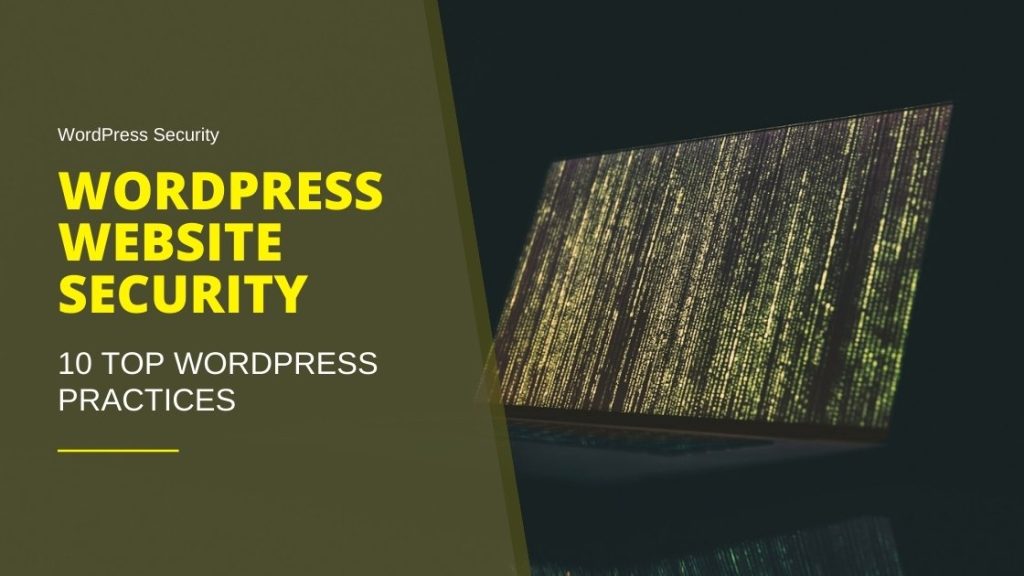Introduction to WordPress WordPress Security Best Practices
Just as website design is important, and WordPress website SEO for driving more traffic is vital, WordPress website security is of utmost importance. Without it, none of the other factors will matter!
Table of Contents
Ensuring the security of your WordPress website is crucial to protect sensitive data and maintain user confidence.
To keep your WordPress website secure, it’s essential to stay updated with the latest features and improvements of WordPress.
Regular updates not only introduce new functionalities but also address security vulnerabilities, ensuring your site remains protected against potential threats.
By consistently applying these updates, you can maintain a secure, efficient, and up-to-date website.
Cyber threats pose significant risks to businesses, making it essential to implement effective security measures.
In this article, we will explore 10 essential WordPress security best practices that will help safeguard your website from unauthorized access and potential attacks.
Keep WordPress Updated
Regularly updating your WordPress core, themes, and plugins is a fundamental step in maintaining a secure website.
Updates often include security patches that address vulnerabilities and protect against potential exploits. By staying up to date, you minimize the risk of being targeted by hackers.
Use Strong Passwords and User Permissions
Utilize strong, unique passwords for all user accounts, including the WordPress login, FTP accounts, and associated email addresses.
Weak passwords are easy targets for hackers. Implement two-factor authentication, limit login attempts, and avoid using the default admin username to further enhance security.
Enable Web Application Firewall (WAF)
Deploying a Web Application Firewall adds an extra layer of protection to your WordPress site.
A WAF blocks malicious traffic before it reaches your server, preventing potential attacks. Choose between DNS-level or application-level firewalls based on your specific needs.
Disable PHP File Execution in Unnecessary Directories
Disabling PHP file execution in directories where it is not required adds an additional security measure.
By preventing unauthorized access to these directories, you reduce the risk of attackers exploiting vulnerabilities.
This can be achieved by editing the .htaccess file or using a security plugin.
Use a Secure WordPress Theme
Selecting a secure WordPress theme is vital for maintaining a robust security stance.
Some themes may have code vulnerabilities that can be exploited by hackers.
Ensure your chosen theme adheres to WordPress security standards by validating it through reputable tools like W3C’s validator or official WordPress software.
To enhance your WordPress site’s security, it’s crucial to implement best practices like regular updates, strong passwords, and secure hosting.
The WordPress Block Editor plays a key role in this process, as it allows you to design your site without relying on potentially insecure third-party plugins or custom code.
By leveraging your knowledge and learn how to use the Block Editor, you reduce vulnerabilities and maintain tighter control over your site’s security.
Enable SSL or HTTPS
Implementing SSL (Secure Sockets Layer) encryption establishes a secure connection between your website and visitors’ browsers.
SSL protects data from potential malicious interception, enhancing overall security. Additionally, having an SSL certificate positively impacts SEO and visitor trust.
Prevent Brute Force Attacks
Brute force attacks involve repeated login attempts to gain unauthorized access.
Protect your login pages by configuring unique usernames, hiding the login URL, limiting login attempts, and using security solutions that proactively block malicious attacks.
Add Captcha to Your Forms
By integrating captchas into your site’s login and form submission pages, you can effectively prevent automated bot attacks.
Captchas ensure that only genuine users can access and interact with your website, reducing the risk of malicious submissions.
Disable Directory Indexing and Browsing
Prevent hackers from exploiting directory browsing by disabling directory indexing. This prevents unauthorized access to sensitive files and directories on your server.
Modify the .htaccess file or use your hosting control panel to make this configuration.
Conduct Regular WordPress Security Scans
Perform routine security scans to identify potential vulnerabilities and suspicious code.
Numerous security plugins are available to automate this process, such as Defender, Jetpack, Wordfence, and Sucuri. Regular scans help ensure your website remains secure and protected.
The Conclusion of WordPress Security Best Practices
Implementing these 10 essential WordPress security best practices significantly strengthens the protection of your website.
By keeping your WordPress installation updated, using strong passwords, employing additional security measures like WAFs and SSL, and conducting regular security scans, you can enhance the resilience of your site against potential threats.
Remember, safeguarding your website is an ongoing process, and staying vigilant is key to maintaining a secure online presence.
FAQ
Q1. Why is WordPress security important for my website?
Ensuring WordPress security is vital to protect your website from unauthorized access, data breaches, and potential damage to your business reputation. It helps maintain user confidence and protects sensitive information.
Q2. How often should I update my WordPress website?
Regular updates are essential for maintaining a secure website. It is recommended to update your WordPress core, themes, and plugins as soon as new versions are released to ensure you have the latest security patches.
Q3. What is a Web Application Firewall (WAF), and why do I need it?
A Web Application Firewall acts as a protective barrier, filtering out malicious traffic before it reaches your website. It adds an extra layer of security by blocking potential threats and reducing the risk of attacks.
Q4. What are the benefits of using SSL or HTTPS for my WordPress site?
SSL (Secure Sockets Layer) encryption establishes a secure connection between your website and visitors’ browsers. It encrypts data transmission, protects against eavesdropping, and enhances trust and credibility. Additionally, having HTTPS improves SEO rankings.
Q5. Are there any tools available to help me scan my WordPress site for vulnerabilities?
Yes, there are several reputable security plugins available for WordPress that can scan your website for potential vulnerabilities, suspicious code, and malware. Examples include Wordfence, Sucuri, Jetpack, and Defender. These plugins provide alerts and help you take corrective actions to maintain a secure website.



